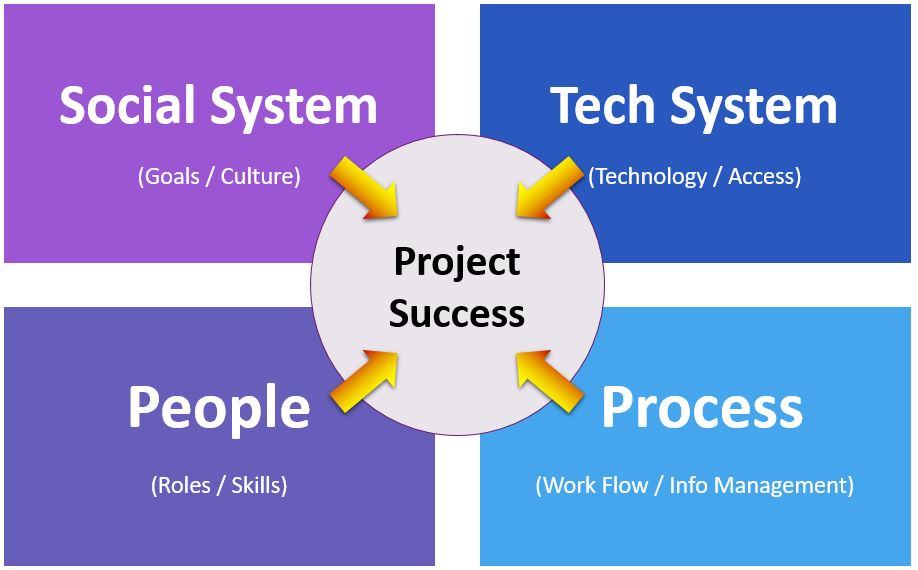What are the software testing skills that you need? Technical skills are most often cited but soft skills like social skills and communication are as important. Communication breakdowns are a primary cause of IT project failures. The key to converting failure into success lies in social skills. Without robust social capabilities IT projects will continue to be adversely affected by a lack of aligned objectives and isolated decision making.
What is a Social Skill?
Social skills are competencies used by individuals when interacting with other individuals (i.e., characterised by human interactions). The social, or soft, skills most frequently associated with software development and testing are communication, interpersonal, teamwork (collaboration), supportiveness, problem-solving, organisational, coordination, and adaptability. Social interactions among team members facilitate knowledge sharing, build relationships, promote trust and, perhaps most importantly, align expectations.
Why Are Social Skills Important?
Social skills help teams establish the definition of and expectations regarding project success. Project success consists of (at least) five categories: scope, budget, time, quality, and usability. Determining whether a project is successful in the eyes of all stakeholders requires consistency across the expectations in these categories. For example, communication, coordination, and adaptability skills enable software test professionals to partner with development teams to determine the components and timing of a build and adjust test deliverables accordingly. Additionally, if expectations become misaligned (i.e., unexpected functionality delivered in build), assertiveness and the ability to communicate across roles and levels will help in the escalation process. Without social skills software test professionals are forced to deal with the less than ideal circumstances at hand.
Successful collaboration requires the ability to stand behind an opinion and capably explain that position to project stakeholders at all levels. If a software test professional cannot effectively communicate the value of testing processes and tasks, he or she loses credibility in the eyes of the project stakeholders. Without sufficient credibility, software test professionals will not receive the much-desired invitation to the earlier stages of the software development life cycle (SDLC). By strengthening individual social capabilities (i.e., improving communication techniques and building supportive relationships) software testers can transform how testing is perceived and help stakeholders understand how the technical aspects of testing align to project goals.
Why Aren’t Tech Skills Enough?
Technological advances occur every day and software test professionals must adapt accordingly; however, maintaining a solid technical foundation addresses only half the challenge. Software testing is a socio-technical undertaking, which means that effective test strategies must incorporate a balance of technical (processes and tools) and social (communication and problem-solving) capabilities.
Social interactions enable us to assess situations and course correct in ways machines cannot. When project timelines shrink, or are aggressive from the start, it’s the people, not the technology, that devise innovative ways of achieving desired results. Software test professionals rely on their communication, adaptability, and problem-solving abilities to tailor testing deliverables to a level of risk stakeholders find acceptable, while still meeting the desired timeline. Unfortunately, most software test professionals invest their training dollars and effort into enhancing their technical capabilities, rather than developing the social capabilities required to explain tactics and align expectations and create IT project success.
How Can You Develop Your Social Skills?
Robust social capabilities create magic within our IT projects across Waterfall, Agile and DevOps methods. From individual contributors to leaders of teams, there are steps we can take immediately to create value for ourselves and our organisations.

Below are three ways individuals can invest in developing social capabilities.
- Set aside time to practice. Partner with a colleague to role play situations. Let your colleague know what soft skill you are practicing so they can better assist you. Commit to doing this at least 2-3 times per month. Be sure to get feedback along the way.
- Try something new. Shake off the bonds of the status quo and experiment with new techniques. Let your team (manager or peers) know you are trying a different approach and ask them to provide feedback after the experiment (i.e., What worked? What didn’t work? What did you do well?).
- Attend a training class. Classes are available on-line or in-person. Pick the format that suits your learning style, budget, and available time.
Managers can develop the social capabilities of their teams by:
- Being supportive. Help foster an environment that encourages employees to practice and experiment. Few employees are comfortable with failure and will hesitate to try new techniques. Encourage their efforts by actively participating in the development opportunity and show your support by experimenting yourself.
- Providing recognition and feedback. Experiments can and will fail, support your employees in their failed attempts by recognizing their efforts and providing constructive feedback to help them course correct. Successful attempts should also be recognized.
- Promoting social skill training opportunities. In addition to technical conferences and courses, endorse social skill training opportunities for your team members, individually or collectively.
- Setting expectations. Include social skill expectations in job/role descriptions and update your interviewing and performance evaluation practices to validate or assess capabilities.
Developing social capabilities is not a once and done activity. As technology changes, the social skills of stakeholders must adapt to maintain the balance of social and technical factors. Social skills also evolve based on team composition, desired goals, and collective abilities. By maintaining a balance of growth in both technical and social skills software test professionals boost team performance and their contribution to project success.
